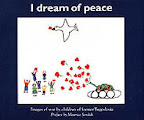
The 2008 presidential election will be decided by undecided swing voters at the center, according to a story from McClatchy about recent public opinion polls. A new Pew poll shows Obama ahead. To quote:
The presidential race remains volatile and unpredictable, largely because of a huge bloc of undecided swing voters.
"The middle of the electorate is reasserting itself in this election," according to a Pew Research Center survey released Thursday.
Among all voters, Democrat Barack Obama leads Republican John McCain by 48 to 40 percent. Pew polled 2,004 people by land line and cell phone from June 18 to 29. The margin of error is plus or minus 2.5 percentage points.. . . Some 44 percent said they most wanted candidates to discuss the economy, with Iraq a distant second priority at 19 percent.
Candidate positions on Iraq -- Today's post is a political follow-up to a previous S/SW post on how the U.S. has its plate full with the war situation in the Middle East. One of the new things in the war situation is a change of command. The Senate voted on Thursday to confirm General David Petraeus as the new head of Centcom, and named Lieutenant-General Raymond Odierno as Petraeus' replacement in Iraq. Each of the presidential candidates has refined his stance on the war in Iraq, according to a recent Washington Post story by Ann Kornblut and Michael Shear.
Sen. Barack Obama on Tuesday dismissed criticism that he is abandoning his principles to move toward the political center, saying he has been consistent in embracing moderate views on several issues, especially his belief that pulling U.S. troops out of Iraq must be done "carefully."
Obama addressed what he called "this whole notion that I am shifting to the center, or that I am flip-flopping," with a firm denial that he has tilted his emphasis away from swiftly bringing the war to an end. "Don't be confused: I am going to bring the Iraq war to a close when I am president of the United States of America," Obama said.
. . . Sen. John McCain, who has repeatedly derided calls for a timetable for withdrawal of U.S. troops from Iraq, suddenly found himself confronted with the American-backed Iraqi leadership raising the prospect of exactly that.
For the first time, Iraqi President Nouri al-Maliki said Monday in a statement that the two countries should consider deciding the future of U.S. troops with "a memorandum of understanding to put a timetable on their withdrawal."
On Tuesday, McCain's top foreign policy adviser declined to criticize Maliki, and his campaign sought to portray those comments as consistent with the Republican nominee's long-standing position.
What's next? With McCain trailing in the polls, the Republicans have "opened another front in the campaign" with a new GOP website, according to McClatchy. With Obama's trip to Europe and the Middle to capture the next headlines, Financial Times columnist Philip Stephens gives us an important "take" on Obama's popularity in the European community. He adds a foreign policy caution:
Deep in European foreign ministries, of course, there are hard-bitten diplomats cautioning against all this euphoria. The new president, whether Mr Obama or Mr McCain, will face the same problems. He will put the US national interest first. And the leader of what is still the world’s most powerful nation will never think like a woolly postmodern European.Mr Obama plans to visit Iraq, Afghanistan and Israel as well as Europe’s three biggest capitals. He will see for himself, these diplomats say, the intractability of the challenges. It is not enough that he is an engaging fellow; and, of itself, engagement will not persuade Iran to surrender its nuclear ambitions.
. . . I have written before about the contradiction in Europe’s view: a demand for US power and a deep distrust of it. Thus on the one hand there is a certain satisfaction that the debacle in Iraq has demonstrated the limits of Washington’s reach. America may still be the sole superpower but it is no longer the hyperpuissance. It must rely on others (Europeans) if it is to act effectively in the world.
On the other hand, there is an assumption that it is still America’s job to fix things. Why should Europe spend more on defence when the US has more ships and warplanes than the rest of the world put together? Of course, Europe shelters under the US security umbrella. But do not ask it to risk too much of its own blood and treasure in the effort to make the world a safer place.
View my current slide show about the Bush years -- "Millennium" -- at the bottom of this column.
(Cross-posted at The Reaction.)
My “creativity and dreaming” post today is at Making Good Mondays.
Technorati tags: news news and politics politics 2008 election obama mccain iraq war
No comments:
Post a Comment